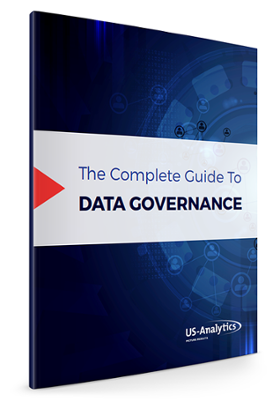Organizations have more data to manage than ever before, and it’s critical to the success of your business to manage that data strategically. But even with data management tools and new roles created to manage that data — most companies have fallen behind, according to a recent article published in the Harvard Business Review.
The numbers to support that claim are even more shocking. Various studies have found that 70 percent of employees can access data that they shouldn’t have access to, and 80 percent of analysts’ time is spent finding and preparing data.
Many companies have started to invest in chief data officers (CDOs) without first developing a comprehensive data strategy. And though you might think the CDO is the perfect person to develop and implement that strategy, many organizations lose their CDO not long after they are hired. Gartner reports CDOs stay at a company for just 2.4 years.
So, how should an organization develop their data strategy? According to the Harvard Business Review, there are two methods: offensive and defensive. In this blog post, we’ll look at those two methods, so you can determine if your data strategy is offensive, defensive, or even a combination of both. We’ll also look at how you can better develop your strategy and technologies you should consider for improved data management.
Offensive vs. Defensive Strategy
The way you approach your data might be offensive, defensive, or a combination of both. The table below covers the varying business objectives and activities addressed by each type of strategy.
|
|
DEFENSIVE STRATEGY |
OFFENSIVE STRATEGY |
|
Business objectives |
Minimize the downside risk |
Increase revenue, profitability, and customer satisfaction |
|
Business activities |
Ensure compliance with regulations Use analytics to detect fraud Build systems to prevent theft |
“Customer-focused” Sales Marketing |
Obviously, most large enterprises would like the data strategy to be a combination of offensive and defensive methods. Some companies can focus equally on both, but the Harvard Business Review recommends emphasizing one strategy over the other.
The Direction to Take Your Data Strategy
If you’re the CDO or in a similar role and charged with developing and executing on the data strategy, you’ve got some big decisions to make.
A defensive strategy focuses on control, while an offensive strategy focuses on flexibility. A defensive strategy has a single source of truth (SSOT), while an offensive strategy has multiple versions of truth (MVOT). As you can see, these strategies are complete opposites. Do you choose a defensive strategy? An offensive strategy? Or some combination of the two?
First, you should consider your industry. Does your industry focus on things like compliance or privacy, such as finance or health care? Or is your industry highly competitive and data provides a competitive edge, like retail? Maybe you fall somewhere in between, such as an insurance company looking to protect their customers’ data while maintaining a competitive edge.
Focusing on both data strategies equally might seem like a good idea, but it could lead to an inevitable failure. After all, flexibly using tightly controlled data is an oxymoron that’s not helping you get anywhere with your data strategy. Emphasizing either defense and control, or offense and flexibility, is the best way to go — of course, making trade-offs as needed.
Besides industry, the following aspects can help you decide which strategy to choose:
- Your company’s regulatory environment
- Your competitors’ data capabilities
- The maturity of your current data management practices
- The size of your data management budget
You also need to keep in mind who will be involved with each approach. For a strategy more strongly rooted in defense, you’ll need to rely more on IT to focus on master data management and information security. For a strategy focused more on offensive tactics, you’ll be looking at working with leaders of the business focused on strategic initiatives.
How to Develop Your Data Strategy
With the information above, you probably have a good idea on how you want to emphasis your data strategy, but that’s just the first step. Developing a strategy is no easy task, especially when it comes to integral data. You need to consider things like…
- Your organization’s ability to manage change
- The magnitude of change that’s occurring
- Your complexity gap
If you’re developing a data strategy for the first time, you might consider hiring an advisor to help you get where you want to go. Many advisory teams offer free consultations to help teams get started.
Choosing a Technology for Data Management
Part of developing your data strategy is finding technology to assist with master data management (MDM). The statistics above indicate the issues organizations have maintaining data consistency. Technology can help, but first you need to understand the terms involved with data management, which are covered in this blog post.
If you’ve decided to implement a strategy with a strong defense, you should consider investing in a comprehensive MDM solution, such as on-prem Data Relationship Management (DRM) or Oracle Enterprise Data Management Cloud.
If you’re going with an offensive strategy, you might still consider an MDM solution to ensure your data is reliable. You should also find a BI tool that allows various stakeholders to easily analyze and work with your organization’s data. There are many BI products out there, from easy out-of-the-box tools to solutions that are highly complex and customizable. As far as cloud options, Oracle has an entire platform focused solely on analytics — the Oracle Analytics Cloud (OAC). The OAC has an infinite number of use cases and functionality that can help you get the most out of your data.
The variety of tools out there can be overwhelming. Allowing an industry expert with decades of experience to help you with your strategy can lead you to choosing the right tools and can help ensure that your strategy as well as technology implementation is successful.






